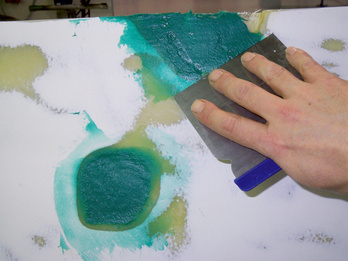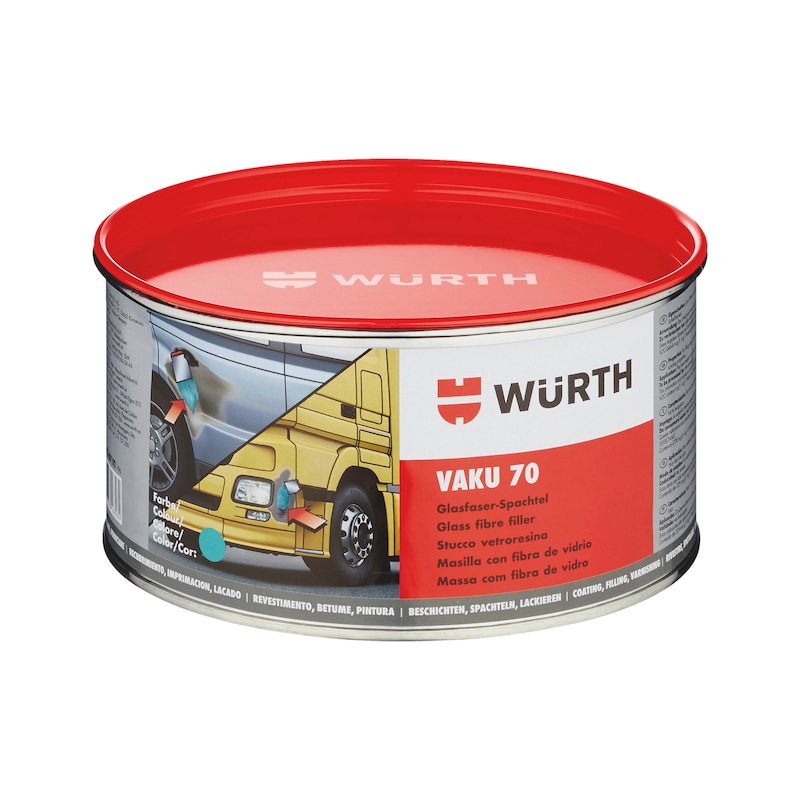For detailed information, other images and documents, please select individual articles from the following table.
Filler VAKU 70
Glass fibre reinforcement filler for bridging cracks, holes and for repairing glass fibre reinforced plastics.
Register now and access more than 43,000 products
Variants
Register now and access more than 43,000 products
Balanced proportion of glass fibres
- Excellent application properties
- User-friendly
Excellent adhesion and stability
- Highly suitable for use on vertical surfaces
- Superb adhesion to iron, steel, aluminium, galvanized and hot-dip galvanized surfaces.
- Ideally suited as knifing filler after repairing GFRP parts with VAKU 80 repair resin.
Fast curing
- For fast, time-saving further processing.
Maximum permissible VOC content of VAKU 70: 250 g/l of product category 2(b). Max. VOC content in accordance with German Ordinance on Solvent-Based Paints and Lacquers (ChemVOC FarbV): 4 g/l.
Heat-resistant up to 80°C
Tip: Can be coated with VAKU 20, VAKU 30 and VAKU 40 filler without sanding in between coats. To prevent possible complaints, always ensure that the correct dosing ratio of filler to hardener is used.

The usage instructions are recommendations based on the tests we have conducted and our experience; carry out your own tests before each application. Due to the large number of applications and storage and processing conditions, we do not assume any liability for a specific application result. Insofar as our free customer service provides technical information or acts as an advisory service, no responsibility is assumed by this service except where the advice or information given falls within the scope of our specified, contractually agreed service or the advisor was acting deliberately. We guarantee consistent quality of our products. We reserve the right to make technical changes and further develop products.
Auto/cargo: In vehicle construction and vehicle repairs for levelling unevenness, cracks and holes. For repairing glass fibre reinforced plastics. Attachments on trucks and passenger cars.
Metal: In machines and steel construction for levelling out larger damaged areas. For repairing glass fibre reinforced plastics.
The surface must be clean, dry and free from grease. Sand surfaces. Wherever possible, only sand polyester material when dry due to its sensitivity to water. See separate information on wet sanding.
Select RAL-colour code
!! NOTE: On-screen visualisation of the colour differs from real colour shade!!







